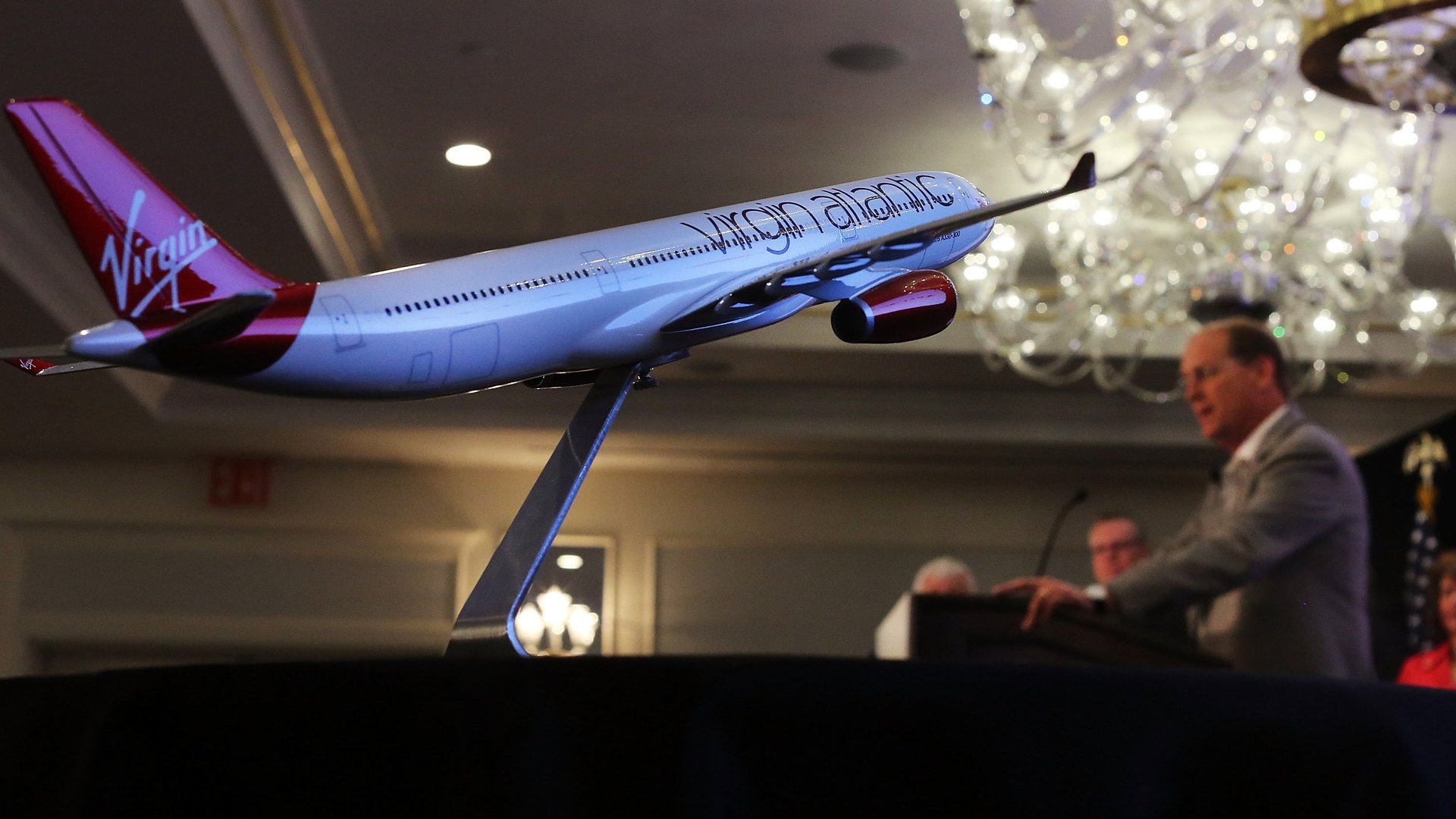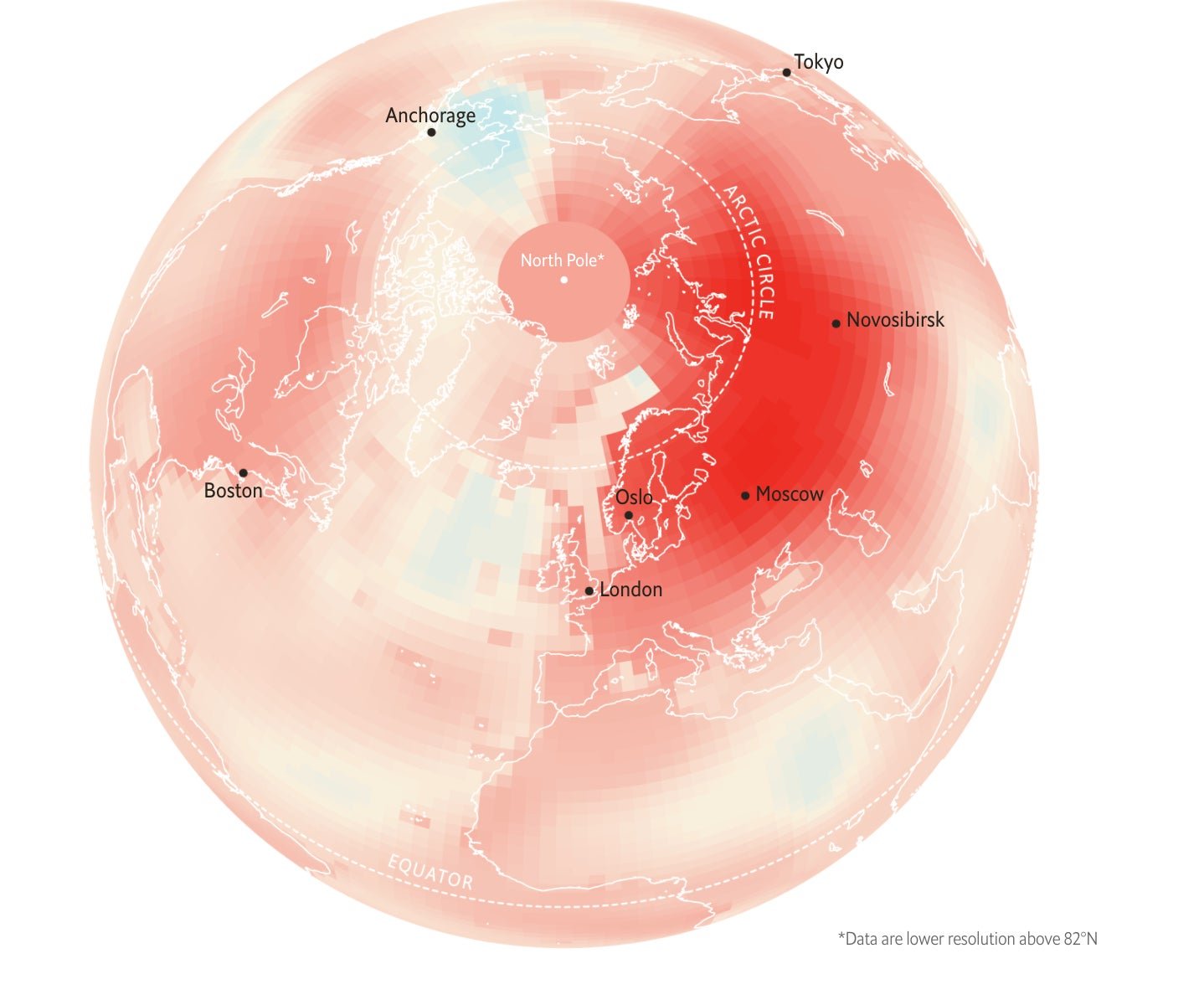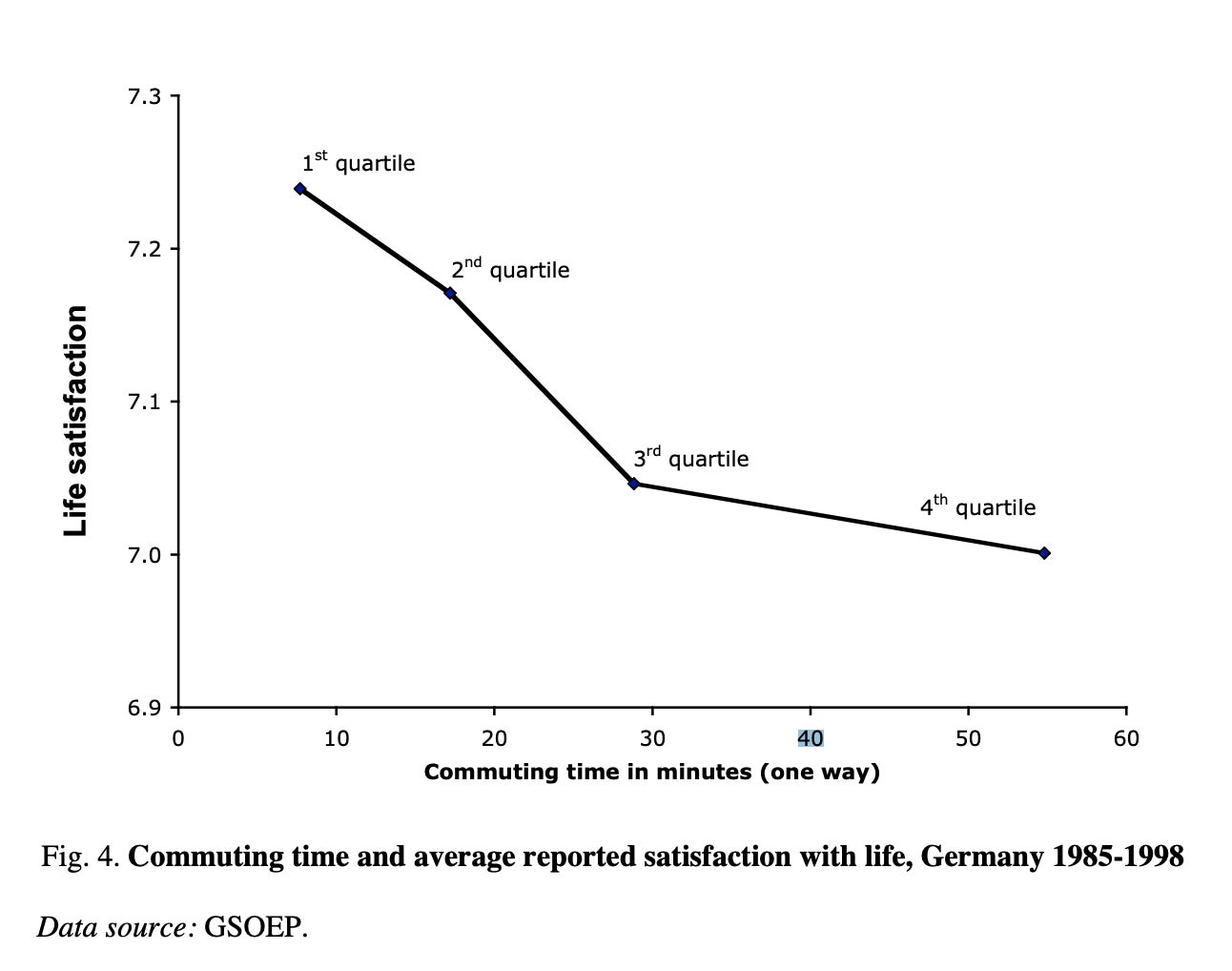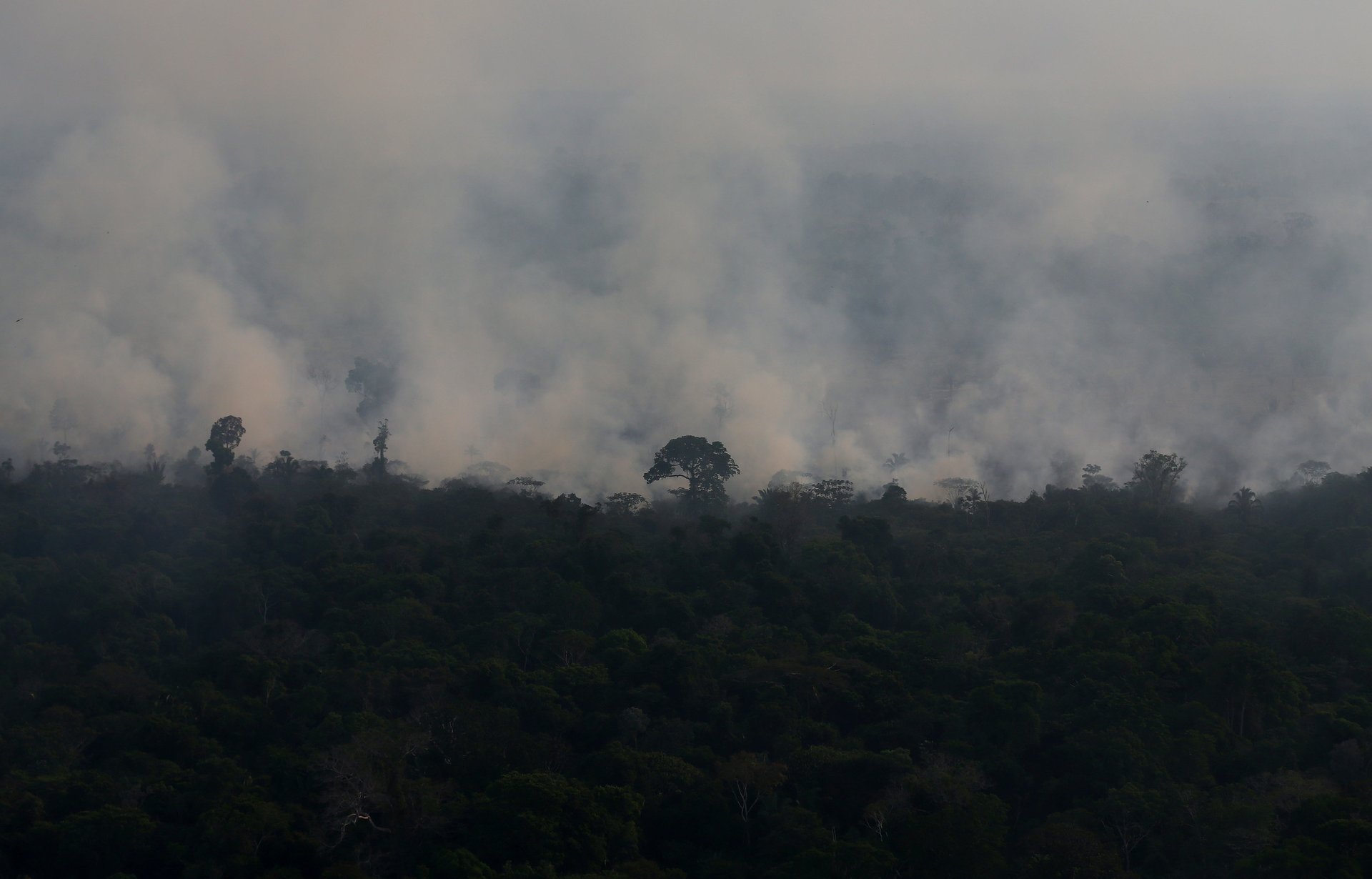The Race to Zero Emissions: oil plunges, plastic surges, and coral bleaches
Here’s what happened over the past week that helped or harmed the world’s chances of cutting greenhouse-gas emissions to zero.

Here’s what happened over the past week that helped or harmed the world’s chances of cutting greenhouse-gas emissions to zero.

Decreases emissions
1️⃣ India’s lit with LEDs. The energy-saving light bulbs jumped from 0.3% to 46% of the market in just five years. Each year, that will save the equivalent of 12 power plants’ annual energy output (30 billion kWh). 💡
2️⃣ Europeans bought 60,000 EVS in February, even as diesel and petrol car sales fell. Before coronavirus hit, EV registrations (battery and plug-in hybrids) had roughly doubled compared to last year.
3️⃣ EU leaders reaffirmed their commitment to the Green Deal as they drafted a response to the coronavirus. 🌲 Details of how Europe will become a carbon-neutral continent by 2050 are still TBD.
4️⃣ Since Virgin Atlantic took the first commercial flight with biofuels in 2008, more than 215,000 such flights have been powered by fossil fuel alternatives. But the alternative fuel industry’s 5 million-gallon annual production is still less than .03% of global aviation fuel use. ⛽️
5️⃣ Global coal power plant construction fell 16% last year, the fourth consecutive annual decline. The declines aren’t enough to meet international climate targets and China is now approving new coal to boost the economy. 🇨🇳😬
Historic highs
We just had the warmest winter ever over land in the northern hemisphere, reports The Economist. Average temperatures soared more than 3°C (5.5°F) over historical averages in in Europe and Asia. Moscow’s daily low in January was -2°C compared to -13°C.

Net-zero (for now)
1️⃣ The US Congress passed a $2.2 trillion bill to rescue the American economy. But neither the clean energy industry, nor oil and gas companies, got what they wanted: an extension on tax credits and money for strategic oil purchases, respectively. 🤷♂️
2️⃣ European oil-and-gas major Equinor will break up with the Independent Petroleum Association of America due to “climate policy misalignments” but stick with the more influential American Petroleum Institute. It’s an early sign that Europe’s fossil fuel industry is charting a new path over its climate change strategy.🤚🏽🛢
3️⃣ Oil and gas are not doing well. As crude prices fall below $20 per barrel, petro giant Occidental cut employees’ salaries by 30%, slashed CEO pay by 80%, and offered unpaid leaves of absence for employees “to return to school, spend time with children or parents or engage in other personal goals.” 💸
4️⃣ Barclays, one of Europe’s biggest banks, says it will bring its business in line with the Paris agreement by aiming to make its own carbon emissions and those it finances “net zero” by 2050. ⏱
5️⃣ Japan said it won’t tighten its emissions target (pdf) under the Paris agreement (26% below 2013 levels by 2030). But a UK official told Climate Home News it expected all major economies to increase their ambitions before the next climate meeting in November.
Your commute or your health
Eventually, most of the world will return to office-based work. A longer trip may mean a higher paycheck, but it will cost you, and the climate, in the end. Besides higher emissions, every minute commuting in a car leads to lost well-being from more stress to less job satisfaction according to economists at the University of Zurich and IZA Bonn in Germany. The researchers estimated a 46-minute daily roundtrip would require a 40% pay raise (above-average salaries) to compensate for reduced health and happiness.

Commuting habits are slowly changing as more people opt to work remotely or travel shorter distances by bike, cab, and other ways. The market is responding. The job board OneMinute.io is a search engine that lets you find and compare jobs based on distance from home along transit routes and bike lanes (only in the Bay Area, so far). And employers (already hesitant to hire employees with long commutes) are now abandoning suburban campuses for city centers.

🔼 Increases emissions
1️⃣ The Trump Administration has suspended enforcement of America’s environmental laws amid the coronavirus, and Brazil followed suit. The move hands a win to groups that had lobbied for it, including the American Petroleum Institute. 🔥
2️⃣ London also temporarily stopped enforcing its clean-air zones due to the pandemic (but warned people not to jump back in their cars). Oxford and Birmingham planned delays of their own schemes. 🚔💨
3️⃣ Scientific expeditions and logistics operations in Greenland and Arctic are being canceled or delayed as coronavirus imposes travel restrictions around the world. That will set back critical climate science efforts. 🛑
4️⃣ The third massive coral bleaching of the 1,400-mile Great Barrier Reef in five years has left scientists anguished as once pristine areas suffer “moderate to severe bleaching.”
5️⃣ Firms making disposable plastic bags see Covid-19 as an opportunity to stop single-use plastic bans harming the industry’s bottom line: “We simply don’t want millions of Americans bringing germ-filled reusable bags into retail establishments putting the public and workers at risk,” stated an industry campaign group. 🛍
Stats to remember
As of March 29, the concentration of carbon dioxide in the atmosphere was 415.68 ppm. A year ago, the level was 412.03 ppm.
For Quartz members
Coronavirus has slashed global emissions. But can it last? Last week, I wrote about how emissions have rebounded as economies recovered. This time may be different if renewable energy offers an attractive alternative to the dismal economics of the oil and gas sector. Read more here.
Have a great week ahead. Please send feedback and tips to [email protected].
Correction: The research on commuting was conducted by researchers at the University of Zurich as well as IZA Bonn in Germany.